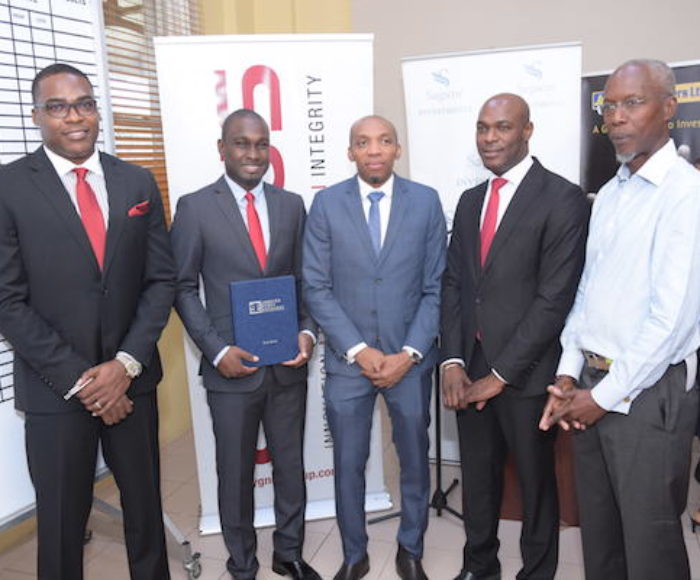As we work to advance regional economic growth and unlock new investment opportunities, it is time for Caribbean businesses to rethink their approach to the capital market.
With a plethora of financial instruments and vehicles available to investors, the market is becoming increasingly saturated and investors increasingly frustrated. They want to make strong choices with a clear understanding of the potential risks and benefits associated with their financial decisions.
This is where transparency and credibility make a difference. If more businesses take the steps needed to get a credit rating, then they can improve their ability to raise capital and scale their operations, and at the end of the day make a wider impact on the economy.
In the simplest terms, a credit rating can be described as the probability of a company defaulting or not defaulting on financial commitments. It is a score derived from a rating agency that has done a comprehensive credit and risk assessment of the company. Scores can vary from a high of AAA to a low of C.
Businesses that score between AAA and BBB- are considered investment grade, those that score BB+ to C are considered Speculative and anything below C is reserved for companies in default.
The organisations that assign credit ratings are expected to conduct thorough analysis and provide investors with an independent evaluation and assessment.
The world’s “Big Three” credit rating agencies are Standard & Poor’s, Moody’s and Fitch Group. The leading Caribbean credit rating agency is Caribbean Information and Credit Rating Services (CariCRIS). CariCRIS ratings aim to provide a regionally relevant risk assessment — an objective assessment of the rated entity’s creditworthiness relative to other rated entities in the region and with an understanding of the risks that are unique to the Caribbean.
Once an organisation’s broker/advisor initiates contact with the rating agency, CarCRIS will send the client an engagement letter to get the process started. The pace of the process relies largely on the organisation’s ability to supply the necessary documents and information required by the rating agency.
CariCRIS assesses everything from the strength of the organisation, financials, legal claims and operational systems. They also conduct interviews with members of the Board and Management team.
Despite this exhaustive approach, it is still possible for the process to move quickly, and indeed, a rating can be achieved in less than a month.
FOUR REASONS
Here are four key reasons why more Caribbean companies should get rated:
- Investors often do not have the time or expertise needed to do detailed due diligence. Furthermore, it can be difficult for an investor to analyse and benchmark companies in different industries and countries. Not only will the rating agency complete an extensive review of the company, but it will also harmonise the elements that are unique to that company’s position. They provide a score or a grade that is irrespective of the company’s industry and location so that investors can compare apples to apples.
- The rating agencies are independent and reputable third-party firms. They use tools and models that have been built to overcome human subjectivity. This eliminates threat of bias, which provides added comfort to the investor.
- Some investors, for example with pension funds, cannot buy unrated fixed income bonds. Getting a bond rated increases the investment universe providing more options for investors to put their money rather than having it sit in cash or having too much of the same investments.
- The rating agency’s assessment of the company does not end with the one-off rating. They carry out ongoing maintenance reports that show potential downgrades and upgrades. Investors can continue to be aware of the annual rating as time goes on and use the information to determine if they should continue to invest or sell. This is especially valuable for investors who have to deliver internal reviews to investment committees consisting of senior management and/or a board of members.
At the end of the day, the benefits to the investor result in big benefits to the issuing company. They gain added credibility, which helps banks and investors feel more confident about investing in them.
They also attract better pricing and open up more investor segments. Even creditors and suppliers can be wooed into providing favourable credit terms due to added confidence in the rating. It takes some focus and effort for an organisation to get rated, but with the right broker/advisor to manage the process it can be a fairly painless one that pays off big in the end.
Source: Jamaica Observer




